
Boomerang kids: Blessing or curse?

Tim Wilson
Date posted: 26 Jun 2025
Young men are returning to church. That is the headline which is grabbing all the attention right now. But an equally striking trend is unfolding that is not being considered by Christians. Young adults are also returning to live with their parents.
These are the “boomerang kids”, whose parents sent out but have come back. Their number is growing. A survey by the Institute for Fiscal Studies (IFS) found that 18% of 25- to 34-year-olds still lived with their parents. This was more likely among young men (23%) than young women (15%). With 18- to 24-year-olds this is over half.

culture watch
From Bob Vylan to Shine Jesus Shine and beyond

Rebecca Chapman
Date posted: 20 Jul 2025
Songs have the power to set a scene – whether rebellious, celebratory, or full of relief and hope. Songs like: School’s Out for Summer, We’re All Going on a Summer Holiday and Here Comes the Sun.
Songs sung together have even more power to unite us and evoke feelings. From terraces resounding with the sound of “swing low, sweet chariot” to the quiet beauty of a Gregorian chant or the moving repetition of a Taizé song, music made together has huge power.

culture watch
Fathers, sons and the 'vital' importance of trust

Rebecca Chapman
Date posted: 15 Jun 2025
Trust between fathers and sons may sometimes be faltering, despite the best intentions of all involved, but recent headlines have shone an unpleasant spotlight on one particular royal father and son.
After Prince Harry lost a legal battle over taxpayer-funded security, his first instinct seems to have been to call the BBC to arrange an interview and publicly air his unhappiness. And also to fuel speculation over the health of his father by saying he “doesn’t know how long” the King has left. Loyalty to his father appeared to have left the building. Long-term royal correspondent and commentator Jennie Bond told LBC that “trust has been completely blown out of the window” – presumably on all sides. How that must hurt everyone concerned.
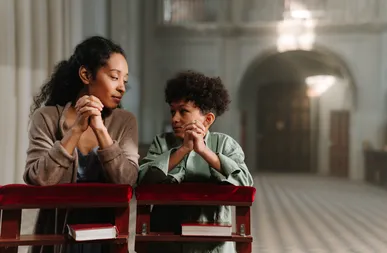
Overlooked by the world, but purposed by God

Tim Vasby-Burnie
Date posted: 10 May 2025
Reports of a "Quiet Revival" have been exciting Christians in recent weeks, yet for the foreseeable future we will continue to feel the deep relevance of 1 Peter to the contemporary church: we are “exiles” in this world (1 Peter 1:1).
As with many of our brothers and sisters across the world, we are a minority in a culture that is suspicious of our faith and all too ready to speak maliciously against the church (1 Peter 3:16, 4:4). Do you feel this yourself?

earth watch
A flourishing earth is possible - and promised

Paul Kunert
Date posted: 10 Nov 2025
It’s COP season again. COP30 – or to give it its full title, the 30th Conference of the Parties under the United Nations Framework Convention on Climate Change – gets underway imminently.
Dimly we might recall COP26 hitting headlines in the UK four years ago when Glasgow hosted it. Boris Johnson’s one minute to midnight speech, perhaps? Maybe “keeping 1.5 alive”? Or Alok Sharma’s tears when India pulled the rug on his deal to phase out coal?
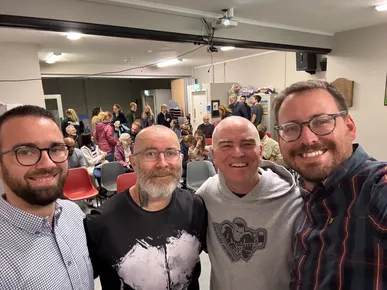
Ireland transformed: Peace, prosperity & the gospel's quiet advance

John-Edward Funnell
Date posted: 18 Oct 2025
This month, I had the privilege of being invited to Southern Ireland to speak. It had been over a decade since I last visited the area, and I could not believe how much it had changed.
I met with a number of Baptist ministers seeking to plant churches in working-class estates around Cork, and I was asked to advise them accordingly. I was so encouraged by what I saw.
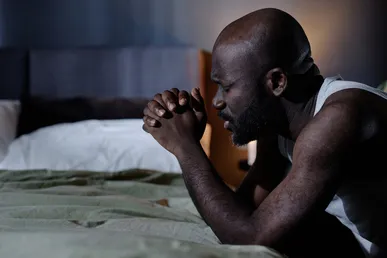
Rediscovering the 'lost' art of kneeling in prayer

Roger Carswell
Date posted: 18 Sep 2025
A visitor to the Continental Congress in America was eager to see George Washington. He asked a steward: “Which one of those men is George Washington?”
The reply came: “When the Congress goes to prayer, the one who kneels is General George Washington.”

Pakistan’s little-known Christian story

Mike Wakely
Date posted: 5 Feb 2025
In a small town in western Punjab, now in northern Pakistan, there lived a Hindu from a caste of farmers. His name was Nattu Lal. He heard the gospel, put his faith in Christ and was baptised in November 1872.
Nattu was the son of the head man in his village. His family was wealthy, but Nattu wasted his money and proved himself to be a poor Christian witness. But he did one thing that was of immense importance. He brought a poor man called Ditt to faith in Jesus.

Fear and fervent prayer: lessons from South Korea's Christians
David (Sung Tae) Kim
Date posted: 12 Dec 2024
South Korea, long recognised as a symbol of democracy in Asia, now faces significant fear and uncertainty after President Yoon Suk-yeol's recent declaration of martial law.
This move included attempts to restrict civil liberties, suppress political activities, curb media freedoms, and grant the military authority to take control of the National Assembly. These measures have stirred widespread fear and protest across the country.

Church growth? ‘That’s putting the cart before the horse’

John Woods
Date posted: 1 Nov 2023
en Reviews Editor John Woods talks to David Brown, an experienced church ‘revitaliser’ in France.
en: Thank you for speaking to us and thank you for writing Re-Connect Your Church: a practical handbook for church revitalisation. One of the words you use a lot in your book is ‘healthy’. What do you mean by healthy, and why is that such an important term for you as you think of the church?

UK in transition: Have you prayed for Liz Truss?

James Mildred
Date posted: 1 Oct 2022
What should we make of Liz Truss?
I’m always struck by the apostle Paul’s command in 1 Timothy 2:1-2, where he says God wants us to pray for all kinds of people. He then immediately gives the examples of kings, emperors, and those in authority over us, and draws a connection between prayers for these people and the freedom we enjoy to live quiet lives in all godliness and holiness. Recognising our human weakness and tendency to ignore commands, he adds a further reason to this duty: it pleases God who wants all kinds of people to be saved.
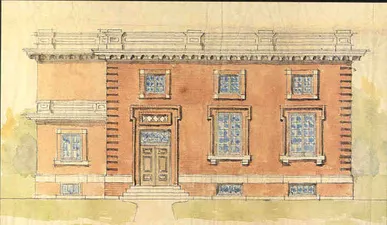
history
Those who ‘rest in unvisited tombs’

Michael Haykin
Date posted: 1 Apr 2022
In a recent statement regarding some of the cultural turmoil in North America, historian Owen Strachan, the Provost and Research Professor of Theology at Grace Bible Theological Seminary in Conway, Arkansas, made an observation about church history that I found quite surprising. He noted that ‘epic stands for truth … are usually taken alone, so high is their cost’.
I found it quite surprising because my own study of church history has given me a fundamentally different perspective. It is a perspective that I have learned inductively from church history (be it the Apostolic era with the Pauline circle, or the Cappadocian Fathers, or the Celtic Church, or the Reformers, or the Puritan brotherhood, or the Evangelical revivals of the 18th century), and it is namely this: God never does a great work in the history of the church except through a band of brothers and sisters.
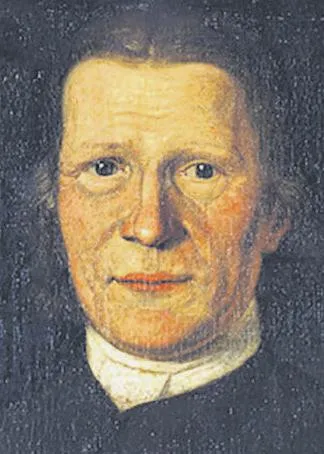
history
David Zeisberger’s zest for spreading the gospel

Michael Haykin
Date posted: 1 May 2021
When William Carey drew up his paradigm-changing book An Enquiry into the Obligations of Christians to Use Means for the Conversion of the Heathens in 1792, he included a mini-history of missions.
He cited examples of missionaries passionate for the expansion of the rule of Christ. In this mini-history, he referenced a remarkable missions-minded community, the Moravians. Carey’s words about this 18th-century body of believers are tantalisingly brief, but indicative of their influence upon him. ‘When I came to evangelism and missions,’ Carey noted, ‘none of the moderns have equalled the Moravian Brethren in this good work’.
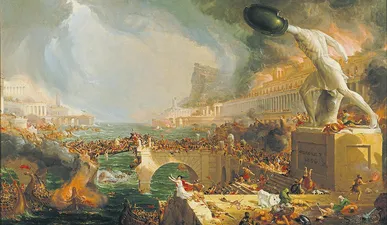
Living Christianly in a Covid world
Richard Cunningham
Date posted: 1 Aug 2020
Richard Cunningham explores C.S. Lewis’ sermon, ‘Learning in Wartime’ and what we may learn from it in the midst of a pandemic
I understood just how strange and surreal life had become under the shadow of Covid-19 when, waking from a vivid dream, I found conscious reality stranger than my night visions.

Brazil: ‘God above all’
Christianheadlines.com
Date posted: 1 Apr 2020
Brazil’s President Jair Bolsonaro made a
surprise visit to The Send, a worship event
in Sao Paulo, saying he ‘believes in Jesus as
his Saviour and that Brazil belongs to God,’
it was reported in March.
Bolsonaro hasn’t been quiet about his
faith. He considers himself a God-fearing
man. His
faith was
strengthened during
his presidential campaign and after he was
nearly killed in an assassination attempt.
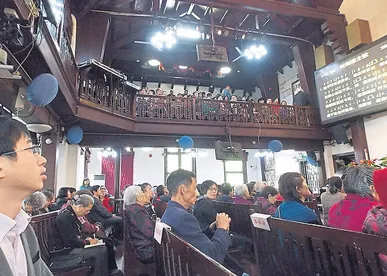
Storm clouds over China’s church
Tony Lambert
Date posted: 1 Sep 2018
Tony Lambert gives his assessment of what is going on in the world’s most populous nation
Since the death of Mao in 1976, the church in China has enjoyed remarkable growth and revival.

Just a boy amidst the Revival
Richard Bewes
Date posted: 1 Nov 2017
Richard Bewes recounts his childhood with missionary parents in East Africa
My parents were missionaries in Kenya.
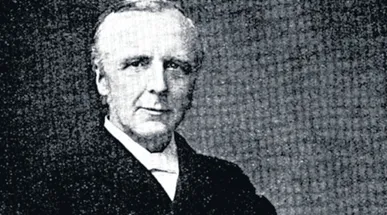
Knowing God Better
Depending on God’s Spirit

Jonathan Lamb
Date posted: 1 Feb 2017
‘I believe in the Holy Ghost,
I believe in the Holy Ghost.’
It was apparently the habit of the great
Baptist preacher, C. H. Spurgeon, to say this
quietly under his breath every
time he
mounted
the
steps of
the pulpit at
the
Metropolitan Tabernacle in London. Even if
the story is apocryphal, Spurgeon’s ministry
affirmed the importance of the Spirit’s work:
‘Men might be poor and uneducated, their
words might be broken and ungrammatical;
but if the might of the Spirit attended them,
the humblest evangelist would be more
successful than the most learned divine
or the most eloquent of preachers.’
Below me, the clouds
One dark, blacked-out evening early in 1945, when returning from an evening service, I overheard my brother Harold quietly speaking to mother.
She was distressed at seeing her eldest son, Fred, go to Malaya as a soldier. Harold himself would soon be joining the army. She was naturally afraid that she might lose both sons in the war. He spoke to her gently of death as a gateway into ‘the Lord’s presence’ and not the end of life.
Pastor of the village church
Brian & Val Maidstone
Date posted: 1 Dec 2010
Village churches, like those in both cities and towns, are as diverse as their geographical situations.
Some villages are dormitories of cities and large towns and have a population who are very used to commuting for most of their needs, whereas some are very isolated with villagers who are more dependent on the facilities that are provided within the village itself. Whatever the type of village the churches tend to fall into three basic categories.
Reaction and distraction
Ranald Macaulay
Date posted: 1 Jul 2008
When Marian Evans’s novel Adam Bede came out in 1859 it made the name ‘George Eliot’ justly famous.
Her novels soon took their place among the finest in the English language. To discerning readers, however, Marian’s scepticism indicated a growing problem about Christianity and the church.
What Crystal Palace taught me about revival
I’m a massive football fan and I hail from South London. I personally support AFC Wimbledon, but it was a real joy to see another team from my side of the river, Crystal Palace, lift the FA Cup and in the process win the first major trophy in their 100+ years of existence.
Their fans had waited so long for a moment like this, had believed it might never come and when it did, what a moment it was. On a beautiful May afternoon, at a sun-kissed Wembley Stadium, they beat the overwhelming favourites Manchester City 1-0 through a goal by one of their star players, Eberechi Eze.